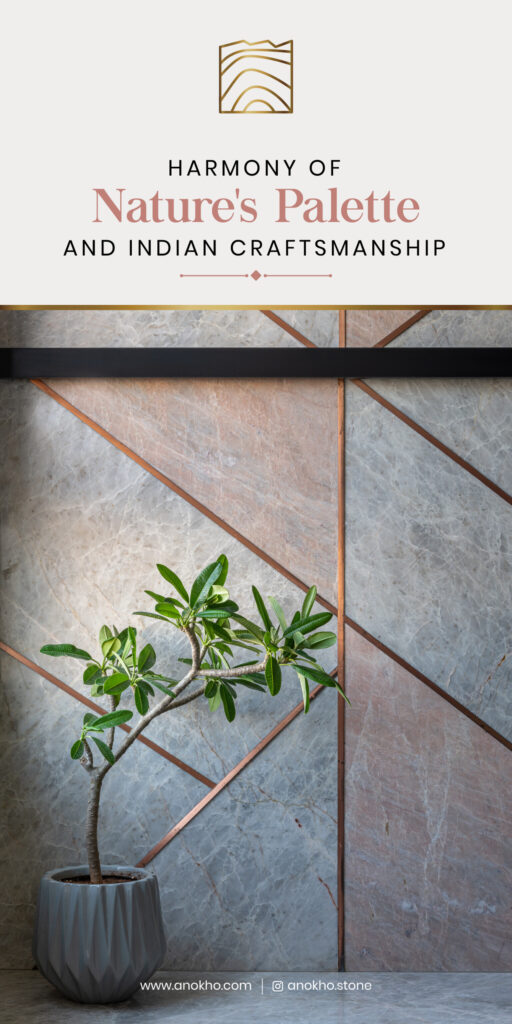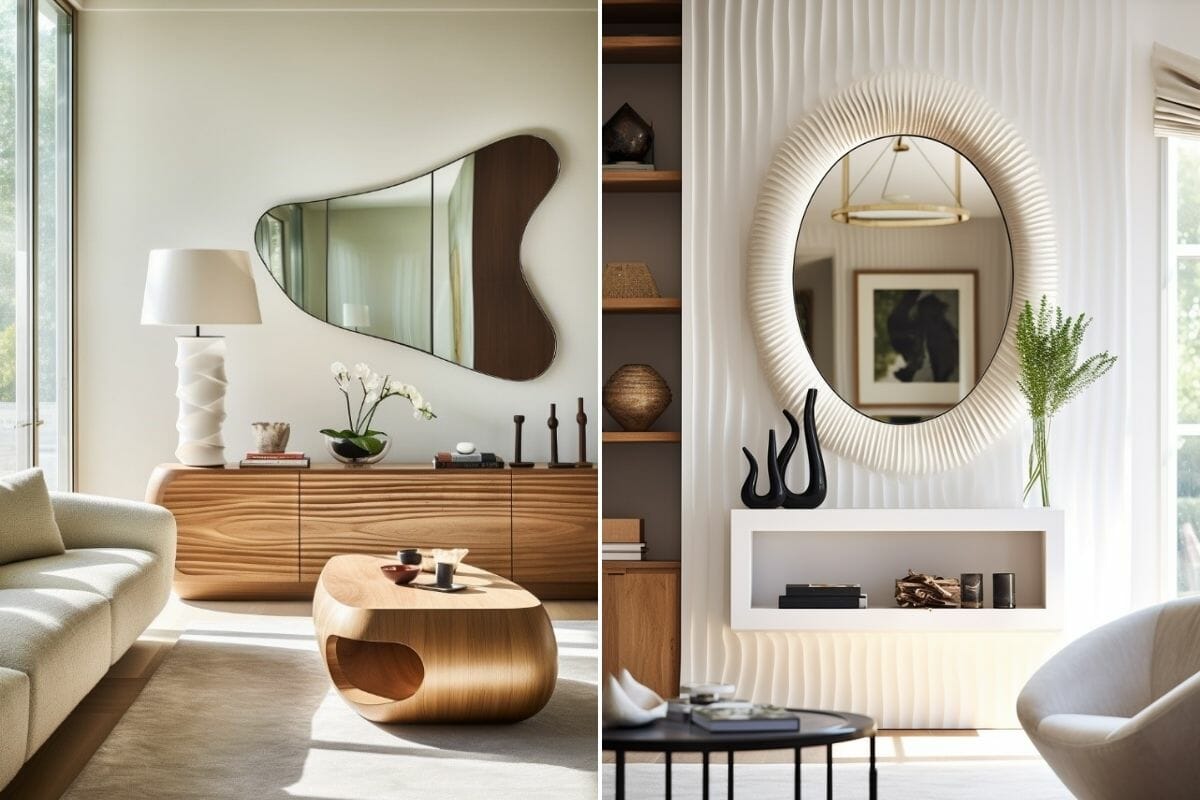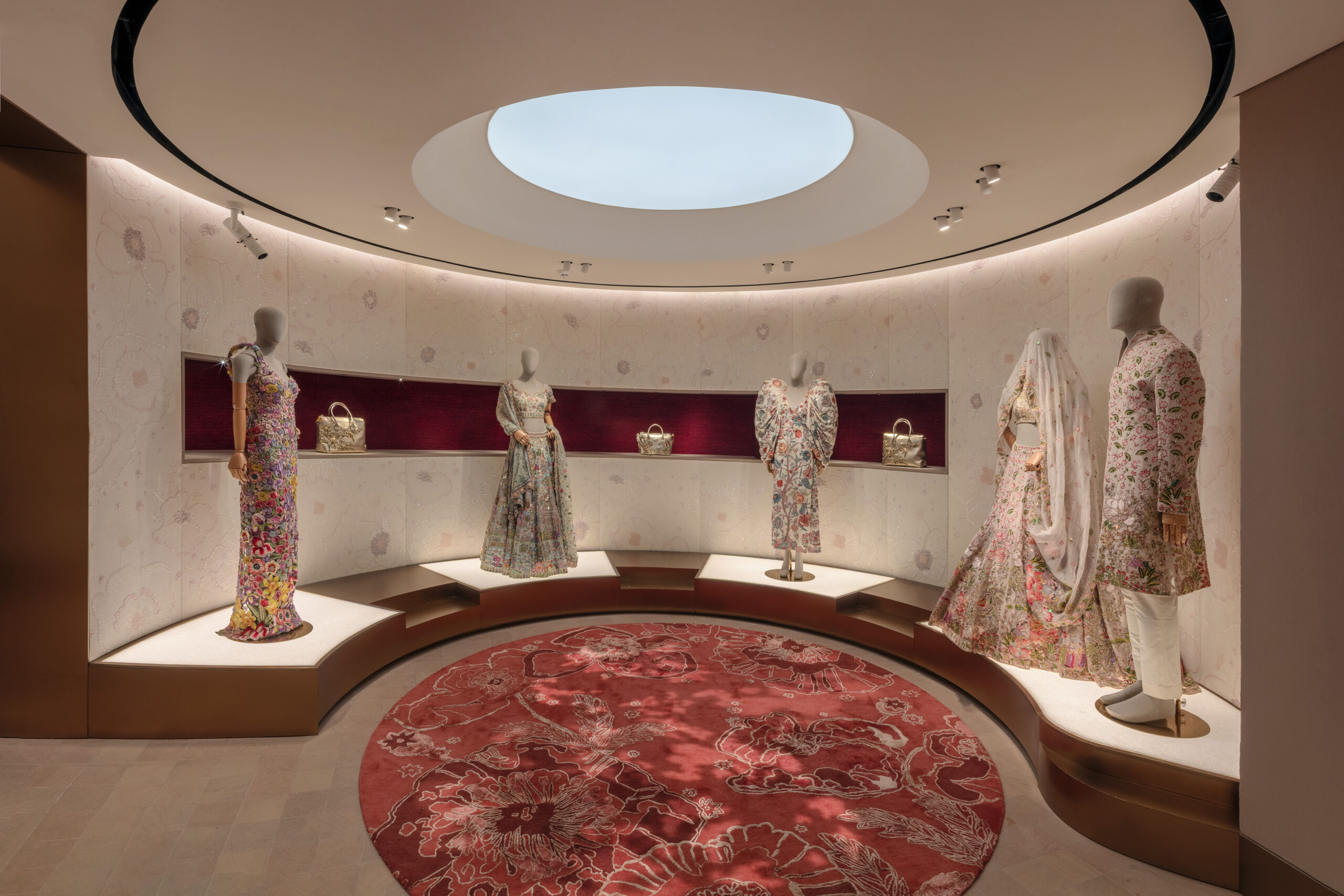Designed by Studio Patternmaker, this 2800 sq-ft retail space is rooted in Indian materiality and craftsmanship while drawing inspiration from global tribal cultures.
With retail spaces increasingly expected to deliver experiences, not just transactions, the Ameya Concept Store in Ahmedabad hits all the right notes. Designed by Studio Patternmaker, this 2800 sq-ft boutique is equal parts showroom and spatial narrative—crafted with an eye for detail, texture, and authenticity.



Led by architect Parthavi Patel, the space blends Indian craft with contemporary design sensibilities. “The client wanted a space that felt rooted in Indian-ness but without being overtly traditional,” she shares. The result? A tactile environment where tribal references meet refined restraint.



The design journey begins at the entrance—a tribal-inspired antique door sourced from Ahmedabad acts as a portal to what feels like a sanctuary for slow, intentional retail. A peek through glass panels reveals glimpses of what lies within, while a ship from the client’s personal collection and carved stone forms immediately set the tone: reverent, sculptural, and unexpected.
Inside, a striking L-shaped partition made from hand-twisted jute chords and jute leaves mounted on a dull brass frame greets visitors. Each visual decision has been made with a commitment to slow design and material richness. The display units—brass rods emerging from boulder-like bases—blend raw and refined in equal measure.
“I was deeply inspired by South African design,” says Parthavi. “From detailing in tribal jewellery to door carvings, the influence is visible but interpreted through an Indian lens.”



That approach is especially clear in the use of reclaimed wood—seen in mirrors, consoles, and furniture—that carries echoes of tribal workmanship. The flooring features three-toned marble with travertine inserts in a woven pattern, echoing craft and detail underfoot. Even the skylight and trial room elements, like a teak-paneled section with antique inlay hanging bars, underscore a quiet, deliberate luxury.

Functional requirements haven’t been sidelined. The space seamlessly integrates the client’s private office, a restroom, a staff zone, and an in-store workshop for the brand’s 10 female karigars—whose embroidery skills lie at the heart of Ameya.
In its final form, Ameya feels more like a sensorial landscape than a commercial store. “It’s about familiarity, but also the thrill of discovering something new,” Parthavi concludes. With its elegant restraint and immersive storytelling, this is retail design done right.
















